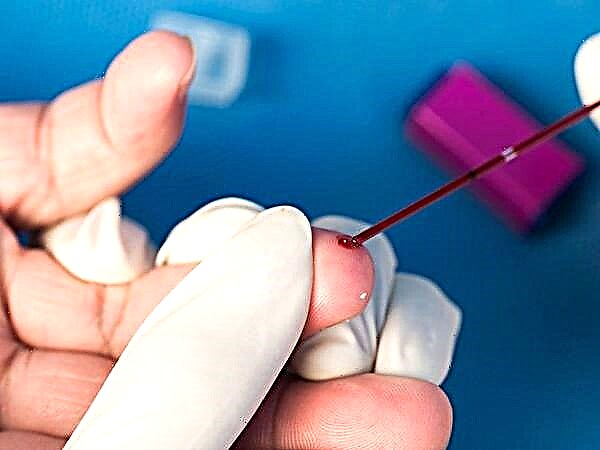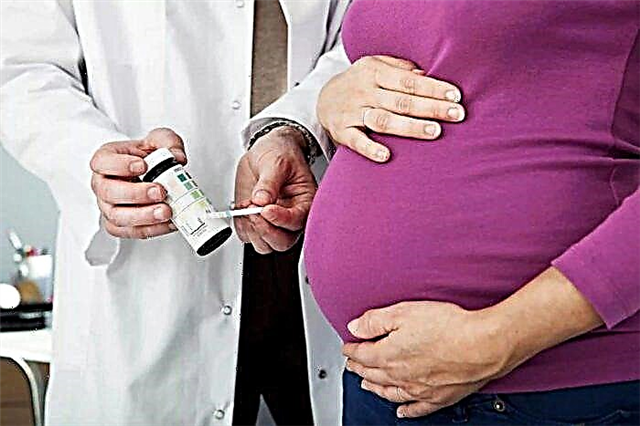A baby was born, already on the first day in the maternity hospital, the baby is waiting for examinations, various manipulations to identify diseases. If the data is normal, then the baby and the mother will be discharged home on the third or fifth day. In case of revealing a pathology, the baby can stay in the department for several months. What tests are taken from newborns in the maternity hospital and whether it is possible to refuse them is discussed in this article.

Blood test from the heel of a newborn in a maternity hospital
The first days of a newborn
Every mother wants to know if her child is healthy. After birth, the baby is assessed by neonatologists, he is given a mark on the Apgar scale.
Important! The scale includes 5 vital signs of the baby's condition. 8-10 points characterize a healthy baby. If the mark is below 8, then there are problems, perhaps the mother's gestosis caused fetal hypoxia. If the score is less than 5, this is the presence of severe asphyxia.
Apgar scale includes an assessment:
- the color of the skin;
- the presence of muscle reflexes;
- what is the child's breathing;
- Does the baby cry, and what is his cry;
- how the heart contracts.
There are 15 types of inborn reflexes in a newborn. The most basic ones that are monitored after birth are grasping and sucking, since they are responsible for the life and adaptation of the baby in the outside world. The grasping reflex speaks for itself - the baby tries to grab onto the adult's fingers and tries to pull them.

Manifestation of the sucking reflex
As soon as the baby is born, it must be attached to the chest. The baby begins to stretch his lips and look for the mother's breast - this is the sucking reflex.
Tests in the hospital for a newborn are carried out according to a specific protocol. If the baby is healthy, then the main analysis is carried out to identify pathology. Other examinations are usually not done because there is no indication for them.
Additional Information. The baby may be tested for a blood group to determine if the baby has hemolytic disease. If a suspicion of this disease is found, then blood is taken from the child's heel when newborns are screened to determine the amount of bilirubin. This analysis will tell you if a mother can breastfeed her baby.
Many mothers ask the question why they take blood from the head of newborns. Such an examination will help identify the presence of genetic diseases.
Note! You can refuse analyzes. It is genetic disorders that manifest themselves not immediately after birth, but in the first or second year of life. At this point, complications are possible, and the condition is difficult to stabilize.
If a woman in labor has HIV, a blood test is also taken from the baby to detect this disease.
Newborn screening
Neonatal screening detects the presence of severe genetic diseases in infants, when they have not yet manifested themselves.
These are 5 serious diseases:
- phenylketonuria;
- cystic fibrosis;
- congenital hypothyroidism;
- adrenogenital syndrome;
- galactosemia.
If treatment is started in a timely manner, then the favorable outcome of the disease is very high.
Screening terms and conditions
On the fourth day, a "heel test" is performed. If the baby was born prematurely, then on the seventh day.
Important! If the baby was discharged on the third day, then blood sampling is carried out in the clinic.
A blood test is taken on an empty stomach or 3 hours after the last meal. It is important to carry out this examination no earlier than the fourth day, otherwise the results will be false positive or false negative.
The puncture of the antiseptic-treated place is carried out no deeper than 2 mm, the blood must soak the prepared paper of the test blank. The analysis is done within 10 days.
Mandatory analyzes
What are the mandatory tests taken from a child at birth in a maternity hospital:
- Immediately after birth, blood is taken from the umbilical vein to detect HIV infection, syphilis, hepatitis.
- If jaundice is found, then a liver transaminase test is performed.
- On day 2-3, anemia, insufficient thyroid function and phenylketonuria are detected.
- Blood sampling is also taken to detect genetic pathologies, antibodies to cytomegalovirus, herpes, toxo, and mycoplasma, chlamydia.
- Children in the risk zone undergo additional examinations: urine collection and additional blood testing.
It is important to carry out analyzes of the newborn in order to identify the presence of serious diseases of the baby.
Additionally, examinations are carried out:
- Check your hearing;
- Ultrasound examinations;
- Buried eyes with Albucid;
- Girls' genitals are also treated with Albucid.

Ultrasound of the heart in a baby
Vaccinations are carried out in the maternity hospital, these are:
- BCG vaccination;
- vaccination against hepatitis C.
The physician can personally prescribe a glucose meal and an injection of vitamin K.
Is it possible to refuse analyzes
Mom can sign a waiver at the hospital. However, it should be remembered that all manipulations and examinations in the maternity hospital are recommended and agreed with the Ministry of Health after thorough studies of their effect on the baby's body. The analysis techniques were developed by qualified specialists in this field.
In case of refusal from genetic testing, the parents assume full responsibility for the baby's health. Before making a choice towards rejection, you should evaluate all the pros and cons of this decision.
When transferred to the pathology department
If the crumbs have poor blood tests, which are taken from the head of the newborn, then he can be transferred to the pathology department.
Pathologies of newborns are divided into two types:
- Genetic;
- Purchased.
Additional Information. The baby can be transferred to the pathology department also in case of difficult childbirth, when he received birth injuries: dislocations of the shoulder, hip joint, hematoma.
Genetic pathologies include:
- Down syndrome;
- Sherevsky-Turner disease. It is diagnosed only in girls aged 10-12 years, in the future the girl will be sterile and mentally retarded.
- Kleinfelter's disease. Male disease characterized by tall stature and infertility.
Acquired pathologies:
- Violation in the formation of organs. Kidneys, lungs, heart, eyes can suffer, there can be extra fingers or vice versa.
- Perinatal cerebral excitability. Occurs in case of fetal hypoxia or birth injuries. It is characterized by low muscle tone, the baby's lethargy, drowsiness, he practically does not cry or screams for a long time. A child can be cured in a few years.
- Hypertensive-hydrocephalic syndrome. It occurs due to increased intracranial pressure. Babies are born with a large head volume and a bulging fontanelle.

Hypertensive-hydrocephalic syndrome
According to information from maternity hospitals, in recent years, the pathology department has never been empty. Now there are diseases that were not known some time ago.
Each mother should monitor her condition during pregnancy, and then the baby's health. In case she discovers any deviations in behavior, health, it is necessary to immediately seek the advice of a doctor.



